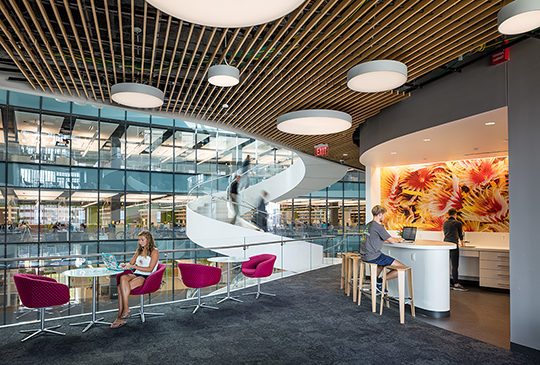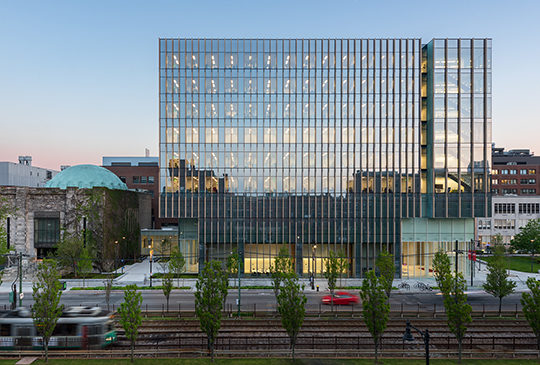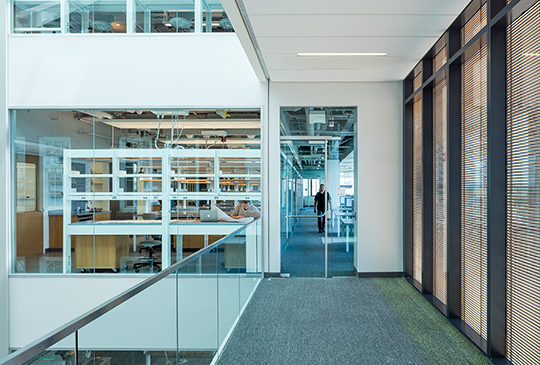In addition to our sessions we are leading at Greenbuild 2017 Expo and Conference 2017, you’ll also get the chance to tour some of our recently completed projects. During the tour of our Harvard Art Museum, you will learn how historic preservation was combined with sustainability, and on November 10 tour three of our recently completed high-performance science research and education facilities at Boston University, Northeastern University and Tufts University. Greenbuild 2017 will be at the Boston Convention and Exhibition Center on November 6 – 11.

The Art of Green
Explore how historic preservation combines with sustainable contemporary architecture to provide educators, students and the public with awe-inspiring spaces to make and discuss art while safely housing masterpieces. This tour will visit two certified LEED Gold cultural icons on university campuses in Cambridge. The Harvard Art Museums project fulfills Harvard’s vision of housing their museum collections into one state-of-the-art facility. The project involved salvaging and reinstalling historical building components; protecting frescoes and an interior courtyard replicating a 15thC Italian piazza; replacing MEP systems; and adding conservation labs. Further down Massachusetts Avenue, Lesley University expanded their College of Art and Design on a highly constrained urban site. An historic church was moved and renovated and a new building designed to fit the corner site. A glass atrium for display space and gatherings connects the buildings. Constructing the arts center required co-operation between university and city planners and neighborhood associations. The Lunder Arts Center helps redefine Lesley University as a center for creative thinkers, and incubates a vibrant arts district in Porter Square. This tour will review the sustainable practices used and examine how the project is having a positive impact through the transformational power of the Arts.
Tour Details:
Monday, November 6 | 1:00 PM – 5:00 PM
The Science and Engineering of Green
Visit three high-performance science research and education facilities, all completed within the past year at prominent universities in the Boston area. The Interdisciplinary Science and Engineering Complex at Northeastern University, constructed on an urban brownfield site, features chilled beams, a solar wall assembly at the mechanical penthouse for pre-heating air intake and a form-defining sunshade system, optimized by using parametric modeling to predict the screen’s solar performance. The complex is designed to use 75% less energy than a typical intensive research building (103 EUI). The Center for Integrated Life Sciences and Engineering at Boston University is designed for resiliency with no mechanical systems below projected end-of-century flood plain levels, and includes water conservation measures and a photovoltaic-ready roof infrastructure. Energy use is projected at 29% below code and water use at 36% below code. The Science and Engineering Complex at Tufts University, in the heart of the campus, meets the 2030 Commitment energy use target with a projected 54% reduction from code (77% reduction compared to a typical lab building). Features include radiant panels and chilled beams, triple-glazed exterior façade, high efficiency heat recovery, integrated solar and glare control, natural ventilation in office and public spaces and sustainable landscaping.
Tour Details:
Friday, November 10 | 1:30 PM – 5:30 PM
Conference Details:
November 6 – 11
Boston Convention & Exhibition Center (BCEC)
415 Summer Street
Boston, MA 02210
If you are interested in attending, make sure to register before September 7th for early bird prices!




